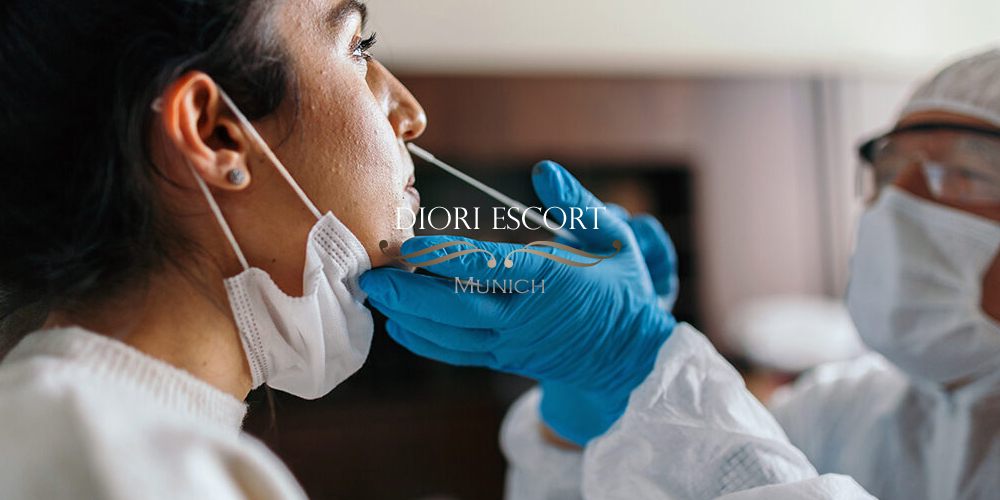A positive test result indicates that the COVID-19 virus has been detected in your body. This can be accomplished by a laboratory-based test or a self-antigen test.
COVID-19 symptoms are often minor and manageable at home for most patients.
What you must do
Continue to isolate yourself and adhere to these guidelines.
When should you seek medical attention?
If you or a dependent has or develops any of the following symptoms, immediately dial 911 and seek emergency assistance:
extreme trouble breathing (e.g., gasping for air or speaking in single words);
intense chest discomfort;
feelings of perplexity; or
consciousness loss (fainting).
If you have concerns about your own or a family member’s symptoms that are not listed above, or if you require medical care, call:
811;
seek direction from your primary health care physician regarding your next steps.
If any other members of your household exhibit signs of COVID-19 and have not been tested, we strongly advise them to do so.
If you are suffering from a medical ailment
Consult your primary health care provider if you experience any of the following:
you’re expecting; or
You have a chronic medical condition, which may include the following:
conditions affecting your ability to breathe, such as COPD and asthma;
cardiovascular disease; or
the immunological system is weakened.
How to isolate yourself safely at home
You must segregate yourself from other members of your household who have not been diagnosed with COVID-19.
If other household members also have COVID-19, you are not required to isolate them. Learn how to self-isolate at home.
You should avoid maintaining touch with individuals who are not separating themselves from you. This includes those who have been inoculated.
Individuals in your household who exhibit signs or symptoms of COVID-19 are also likely to have the virus.
Bear in mind that even if your symptoms subside, you can still infect others. Thus, it is critical to maintain complete isolation for the duration of your illness to protect the health of those around you.
Generally, you will cease distributing the infection to others when:
It has been seven or ten days since you began experiencing COVID-19 symptoms; and
you are more at ease; and
You are not afflicted with a fever (without taking medicine that reduces fevers). This covers any symptom-relieving drugs, such as Tylenol or ibuprofen.
Who isolates themselves for seven days?
If your immune system is not compromised and you have a minor or moderate sickness, the duration of your infectious period is determined by your COVID-19 vaccination.
Is your COVID-19 vaccination current? This indicates that you’ve received:
Two doses of vaccination, with the most recent dose occurring within the last six months; or
Three vaccination doses (2 doses and your booster dose).
If this is the case, self-isolate for seven days. And when you will be healthy then get Escorts Frankfurt and always book vaccinated models. Vaccination is very important for everyone
Who isolates themselves for ten days?
If your immune system is not weakened and you have a minor or moderate sickness, the duration of your infectious period is determined by your COVID-19 vaccination:
If you have had two doses of the COVID-19 vaccine, the most recent dose occurred more than six months ago.
If you have not received a complete round of vaccinations against COVID-19.
If this is the case for you, isolate yourself for ten days.
What is the test form utilized to determine whether a person is currently infected with COVID-19?
Two tests can determine whether you are currently infected with COVID-19.
RT-PCR (the Gold Standard): this is the most accurate test, but results may take 24-72 hours, or in certain situations, even longer, to get due to the necessity for samples to be tested in a properly equipped laboratory.
Antigen tests: these tests are typically faster, returning results in as little as 30 minutes, but are less reliable than the RT-PCR test. The test may miss some infections, and some patients infected with the COVID-19 virus may receive a negative result (called a false-negative test). Similarly, an individual infected with a virus other than COVID-19, such as the common cold virus, may test positive for COVID-19 (called a false-positive test).
If you choose, opt for the RT-PCR test because it provides more accurate results.
An antibody test may also be offered in some countries. This test determines whether you have had COVID-19 in the past and should NOT be used to determine if you have an active infection. Antibody testing determines whether your blood has a specific protein created when you fight a virus. A positive test indicates you have antibodies to a virus in the same family as COVID-19.
While antibodies typically protect against re-infection, there is insufficient data to determine whether and how much protection COVID-19 antibodies may provide. Additionally, testing for antibodies does not guarantee that you will spread COVID-19, so you must continue to take precautions such as staying at home, keeping a physical distance from others, wearing a face covering, and isolating yourself if you develop symptoms.





